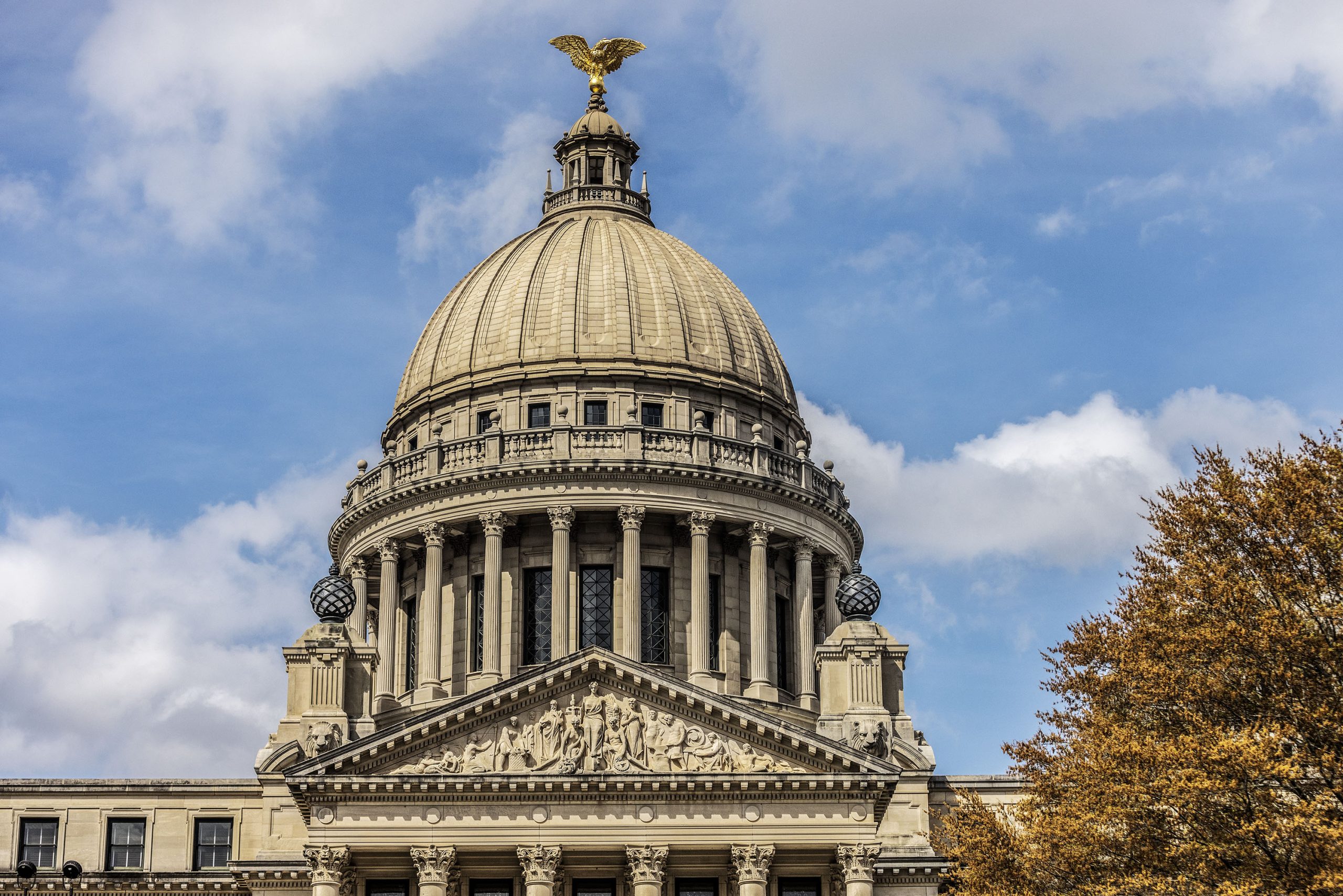Two state lawmakers are criticizing the pending purchase of a defunct Tunica County casino that could potentially be used to house unaccompanied migrant children, though the deal has not been finalized.
State Rep. Dan Eubanks, a Republican from DeSoto County, and state Rep. Cedric Burnett, a Democrat from Tunica County, have openly panned an apparent plan to turn the old Harrah’s Casino building in Tunica into housing for migrant children.
“We need to protect the gaming industry we have in Tunica,” Burnett told Mississippi Today. “This would be counterproductive to what we’re currently trying to do in Tunica.”
The details of selling the former Harrah’s Casino, sometimes called the former Grand Casino, and who is interested in purchasing are not yet public. The casino closed in 2014 and has remained vacant since.
John Perry, attorney to the Tunica County Board of Supervisors, told WREG TV station that the county, which has a limited role in what happens with the property, has not taken a position on turning the property into an “influx care facility,” which could house as many as 2,000 minors.
Perry also told Mississippi Today in a statement that the county has “absolutely no involvement” in bringing undocumented immigrants into the area and emphasized that the property is privately owned.
“The county wants to see the property generate tax revenue, as it has sat in limbo for years, and hopes that the owners can create new revenue for local business and new jobs for local citizens,” Perry said. “The county’s governing authority has always been concerned with the health and safety of local citizens.”
Eubanks said on SuperTalk radio station on Monday that someone from U.S. Rep. Bennie Thompson’s office helped coordinate the potential business deal, something that Thompson’s office pushed back on in a statement to Mississippi Today.
“The Congressman has been made aware of interest in the Grand Casino property,” Yasmine Brown, Thompson’s press secretary, said. “However, the responsibility is left to immigration and customs.”
Immigration has become a contentious issue nationally in the ongoing presidential election between current Democratic President Joe Biden and Republican challenger Donald Trump.
Roughly two-thirds of Americans disapprove of how Biden is handling border security, including about four in 10 Democrats, 55% of Black adults, and 73% of Hispanic adults, according to an Associated Press-NORC Center for Public Affairs Research poll conducted in March.
But fears over the country’s Southern border and disappointment with national immigration policy have also led to rampant misinformation about immigration law, such as a separate, unrelated event that was scheduled to happen in Union County on May 19.
Several recent Facebook posts said that state Sen. Kathy Chism, a Republican from Union County, stopped an event from taking place in New Albany where Gutamalean immigrants, “armed with work visas,” were in the area illegally.
“They will not be given marriage and driver’s licenses, paving the way to voter registrations,” the social media post inaccurately said.
The social media post claimed that the immigrants in the area were in the country illegally yet had obtained work visas, two statements that, on their face, conflict with one another and are inaccurate interpretations of federal law.
A visa allows foreign citizens to travel to a U.S. port of entry and gives Customs and Border Protection officials the authority to permit or deny admission to people with a visa, according to the U.S. State Department’s website. If a foreign citizen has obtained a work visa and has been admitted entry into the country, then they’re likely in the country legally.
Jasmine Haynes, communications specialist for the Mississippi Conference of The United Methodist Church, told Mississippi Today in a statement that New Albany United Methodist Church and La Misión collaborated with a Guatemalan mobile consulate to plan an event to provide Guatemalan citizens in the area an opportunity to get passports, birth certificates and other documents.
“No taxpayer dollars were involved,” Haynes said. “The event had nothing to do with any U.S. matters like registering people to vote. It was the heartfelt intention of the church to be the hands and feet of Christ by being of service to families in the community by removing the barrier of travel for them to reach much-needed resources.”
Out of caution, the consulate decided to postpone the event indefinitely, according to Haynes.
Federal and state law also only allows U.S. citizens to vote in elections. A person does not automatically become a U.S. citizen or gain the ability to vote, even if they obtain a marriage or driver’s license.
A foreign citizen can only become a naturalized American citizen if they’ve been a permanent resident for at least five years or been married to a citizen for at least three years and meet other eligibility requirements, according to the Citizenship and Immigration Services’ website.

